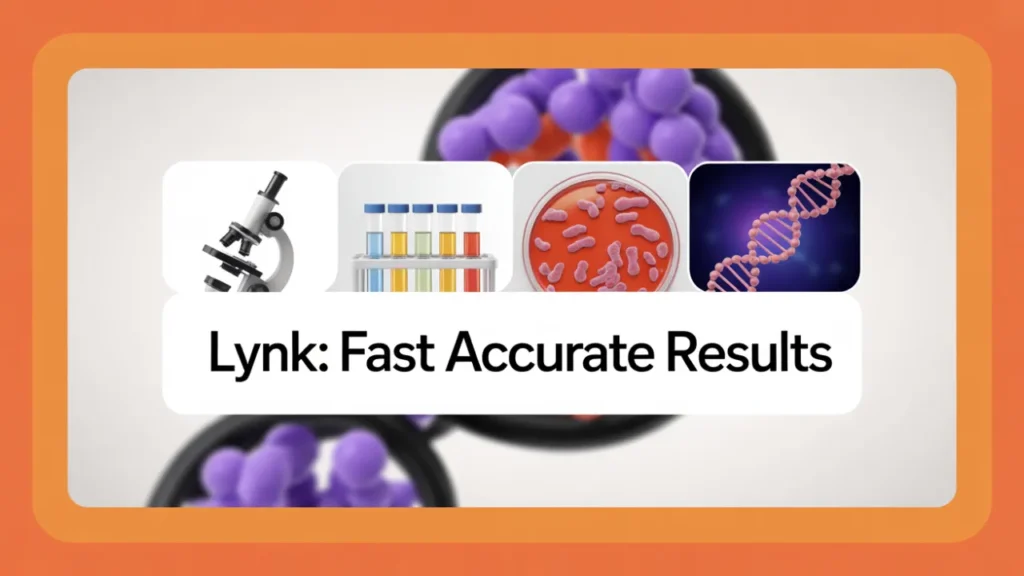Nicotine Blood Test Names
Nicotine blood testing is an essential tool in clinical medicine, insurance underwriting, toxicology, and preventive health care. These tests are designed to detect nicotine and its metabolites, particularly cotinine, in biological samples such as blood, urine, saliva, and hair. At Lynk Diagnostics, we support clinical laboratories and physicians by providing accurate nicotine detection solutions, including urine drug test cups and lab toxicology services.
Understanding nicotine blood test names and their clinical applications is vital for providers, patients, and insurers. This article explains the types of nicotine tests, sample methods, test results, and their connection to disease risk, life insurance, and health insurance decisions.
What Is a Nicotine Blood Test?
A nicotine blood test is a type of drug test that measures the presence of nicotine or cotinine in whole blood. These tests are commonly ordered during a health exam, for insurance purposes, or when physicians assess a patient’s exposure to secondhand smoke or nicotine replacement therapies like nicotine gum, nicotine patch, or nasal spray.
The presence of nicotine or its metabolites helps determine tobacco use, passive smoking, or exposure through medication containing nicotine. Lynk Diagnostics enables health care providers to process these tests reliably using CLIA-certified testing protocols under the Clinical Laboratory Improvement Amendments.

Why Are Nicotine Tests Important?
Nicotine testing provides information used to:
- Determine life insurance and health insurance premiums
- Evaluate candidacy for organ transplantation
- Guide medication dosage and interactions
- Assess risk for lung cancer, chronic obstructive pulmonary disease, and other nicotine-related diseases
In many cases, a physician orders nicotine testing to help identify health biomarkers, review symptoms such as shortness of breath, or track progress for patients trying to quit tobacco.
Most Common Nicotine Blood Test Names
The following tests are the most frequently used in clinical settings and medical laboratories:
Cotinine Quantitative, Blood
This test measures the level of cotinine, a key biomarker of nicotine exposure. It is the most specific and sensitive test for active or passive nicotine use.
- Used in clinical trials and insurance exams
- Provides quantitative data in ng/mL
- Can identify exposure from passive smoking
Nicotine and Cotinine, Serum or Plasma
This test detects both nicotine and cotinine in blood using tandem mass spectrometry or mass spectrometry, offering high sensitivity and specificity.
- Often used for legal or toxicology cases
- Suitable for patients on nicotine patch, gum, or nasal spray
- Supports medical decisions in mental health, pain treatment, and cardiology
Nicotine Metabolite Panel
A more detailed blood test measuring nicotine, cotinine, and 3-hydroxycotinine, this panel is useful for research and medicine optimization.
- Helps determine dose, exposure timeline, and irritation levels
- May include LOINC codes for standardized reporting
Lynk Diagnostics partners with laboratories to ensure that each sample is processed according to Food and Drug Administration standards and industry best practices.
Alternative Sample Types for Nicotine Testing
While blood is a definitive test medium, other specimen types are used depending on the clinical context or testing goal.
Urine
Urine test kits are non-invasive and have a long detection window. These tests are ideal for health care providers seeking to monitor abstinence, workplace compliance, or preoperative readiness. Lynk Diagnostics offers advanced urine drug test cups for on-site detection.
Saliva Testing
Saliva detects recent nicotine exposure and is suitable for employment screening, pain clinics, or mental health programs.
Hair
Hair testing can track long-term nicotine use, typically up to 90 days, and is used in forensic toxicology or custody disputes.

How Nicotine Testing Works in the Lab
Laboratory Methods
Samples are analyzed using:
- Mass spectrometry
- Tandem mass spectrometry (LC-MS/MS)
- Immunoassays
These instruments provide highly accurate measurement of nicotine biomarkers, even in low dose exposures or secondhand smoke scenarios. Lynk Diagnostics ensures that each medical laboratory partner adheres to CLIA and FDA requirements.
LOINC and Data Reporting
Each test is assigned a LOINC code to ensure uniform data tracking across labs and EHR systems. This is especially important when testing influences health insurance, legal cases, or organ donor eligibility.
Reference Ranges and Result Interpretation
Cotinine test results are interpreted using standard reference ranges:
- 1–10 ng/mL: Light exposure or passive smoking
- >10 ng/mL: Active use of tobacco or nicotine therapy
Nicotine levels may also be assessed to detect recent intake. Physicians often look for associated symptoms like dizziness, shortness of breath, heart rate elevation, or skin issues such as rash or irritation.
How Test Results Affect Insurance
Both health insurance and life insurance providers use nicotine test results to assess applicant risk. Even occasional users or those on nicotine gum may be classified as smokers if test results exceed the threshold.
- Smoking increases lung and heart disease risk
- Applicants may face higher premiums
- Some insurers deny coverage if nicotine is detected during underwriting
Physicians and patients must disclose all medication, diet, and nicotine alternatives to avoid misinterpretation. Lynk Diagnostics supports both insurers and physicians by offering fast, reliable lab services and clear result documentation.
Organ Transplantation and Nicotine Testing
Nicotine use affects healing and post-transplant outcomes. That’s why organ transplantation programs require a nicotine-free period.
Tests like cotinine quantitative blood are used to confirm a patient’s abstinence. Exposure from passive smoking or nicotine patches may delay eligibility. Lynk Diagnostics works with transplant teams to support accurate and fast test results during pre-surgical screening.
Clinical Uses Beyond Insurance
Nicotine testing is also used to support:
- Chronic obstructive pulmonary disease (COPD) evaluations
- Cancer screenings, particularly lung cancer
- Mental health assessments
- Pain management planning
Understanding nicotine exposure helps clinicians adjust medication dosage and reduce drug interaction risks. Lynk Diagnostics helps healthcare teams improve medicine safety through comprehensive toxicology testing.
Can Secondhand Smoke Trigger a Positive Test?
Yes. Secondhand smoke and passive smoking can raise cotinine levels in non-smokers. This is especially common in children, the elderly, or cohabitants of smokers.
In such cases, quantitative blood testing helps determine whether exposure is environmental or due to active use. Clinicians can then evaluate breathing problems, such as asthma or shortness of breath, which may be linked to smoke exposure.
How Long Does Nicotine Stay in the Body?
- Nicotine clears from blood in 1–3 days
- Cotinine remains detectable in blood for 7–10 days
- Urine may retain cotinine for up to 3 weeks
Factors like diet, nutrition, organ health, and overall health care status affect clearance times. Hydration and exercise may help reduce biomarker levels, but chronic use requires more time.
Preparing for a Nicotine Test
If a patient is scheduled for a blood test, here are ways to reduce false positives:
- Stop using nicotine gum, patches, or nasal spray
- Avoid environments with secondhand smoke
- Share all medication and supplement use with your provider
- Follow a clean diet and good nutrition practices
Lynk Diagnostics provides patient-friendly information and testing kits that streamline clinical workflows.
The Role of Nicotine Testing in Research
Nicotine is a known alkaloid that interacts with the brain and body. In clinical trials, nicotine blood tests help researchers understand:
- Links to ulcerative colitis and gastrointestinal issues
- Nicotine’s effect on mental health and addiction
- Influence on dose response and drug metabolism
Researchers use whole blood, urine, and saliva testing to collect longitudinal data. Mass spectrometry plays a vital role in validating findings and detecting low-level exposure.
How Lynk Diagnostics Can Help
At Lynk Diagnostics, we support medical laboratories, physicians, and insurers with:
- CLIA-certified nicotine testing protocols
- Urine drug test kits with nicotine panels
- Fast result processing for insurance underwriting
- Toxicology solutions for research, clinical trial, and patient care
- Guidance on interpreting reference range, sample integrity, and biomarker data
We partner with health systems, behavioral health centers, and private providers to improve nicotine detection and support quit programs across the country.

Final Thoughts
Nicotine blood test names like Cotinine Quantitative, Nicotine/Cotinine Panels, and Nicotine Metabolite Panels are vital tools in toxicology, medicine, and insurance. They help identify exposure, guide treatment, and assess health risks related to lung cancer, chronic disease, and nicotine dependency.
Lynk Diagnostics offers accurate, timely toxicology testing—empowering health care providers to make informed decisions. If you need a trusted lab partner for nicotine testing or urine drug test kits, reach out to Lynk Diagnostics today.
Let me know if you’d like a version of this blog uploaded to a CMS, formatted for web, or split into a multi-page series








